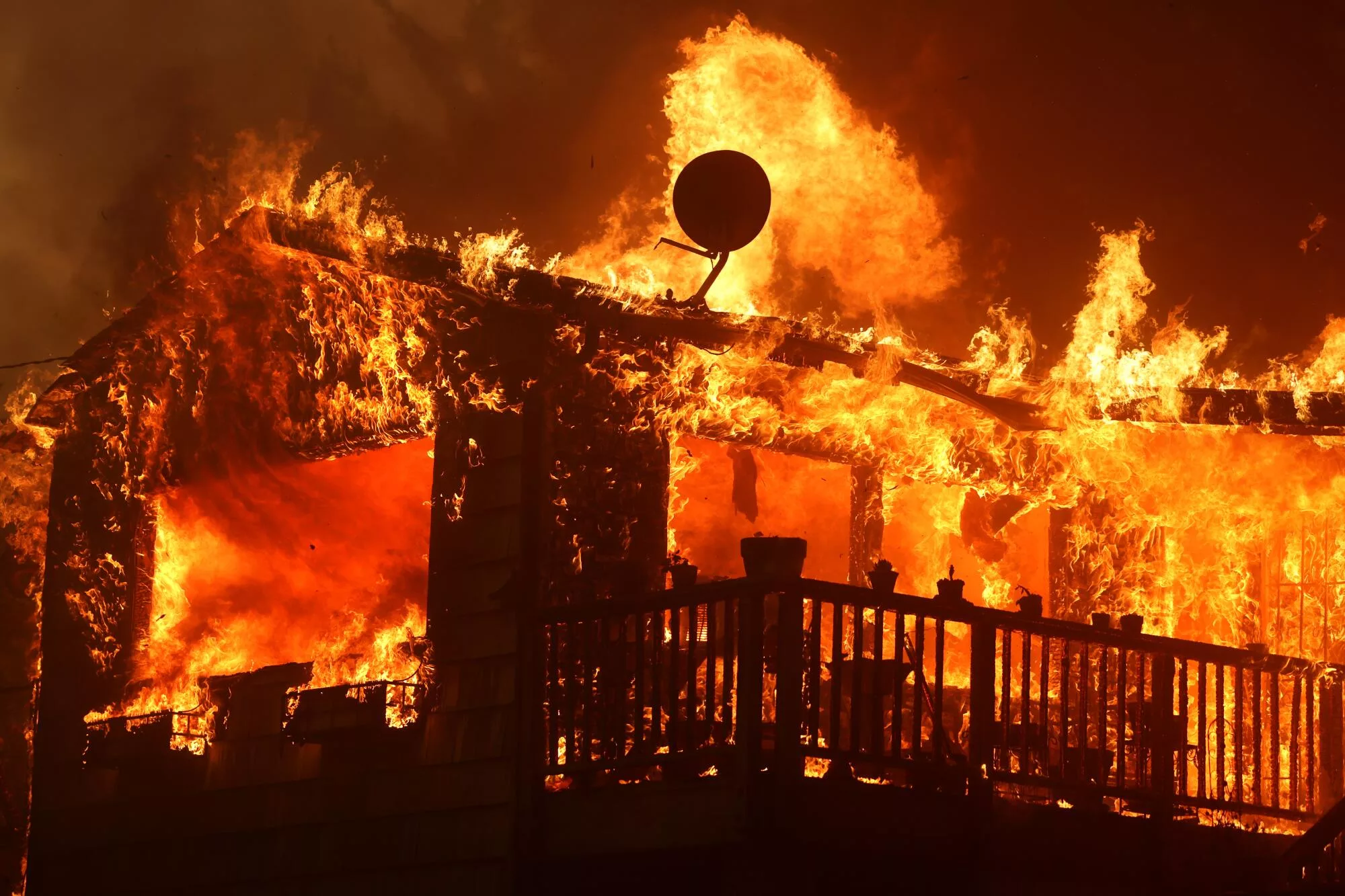The Los Angeles Wildfires: A Case Study In The Growing Market Of Disaster Betting

Table of Contents
The Mechanics of Disaster Betting
Predictive Modeling and Data
The odds offered in disaster betting markets are not arbitrary; they are meticulously calculated using sophisticated algorithms and artificial intelligence (AI). These models consider a wide range of data points to predict the likely severity of a wildfire.
- Historical Wildfire Data: Past wildfire behavior in the region, including acreage burned, spread rate, and containment times, provides a crucial baseline.
- Weather Forecasts: Real-time weather data, such as wind speed, direction, temperature, and humidity, are critical inputs. High winds, low humidity, and high temperatures significantly increase wildfire risk.
- Fuel Moisture: The moisture content of vegetation directly influences flammability. Dry conditions dramatically increase the risk of rapid fire spread.
- Proximity to Urban Areas: The proximity of the wildfire to populated areas heavily influences the potential for damage and the resulting betting odds.
- Topography: The terrain's slope and elevation impact fire behavior, influencing the spread and intensity of the blaze.
However, it's crucial to acknowledge the limitations of predictive models. These models rely on probabilities and statistical analysis, and the inherent unpredictability of natural disasters means that even the most sophisticated models can be inaccurate. Unexpected shifts in weather patterns or unforeseen circumstances can dramatically alter the course of a wildfire, rendering predictions obsolete.
Types of Disaster Bets
Disaster betting platforms offer various wagering options related to the severity of wildfires. While specific examples from real-world platforms are difficult to provide due to legal and ethical concerns, hypothetical examples illustrate the potential market offerings:
- Acreage Burned: Bets could be placed on the total acreage consumed by the wildfire, with odds varying based on the predicted size of the blaze.
- Number of Structures Destroyed: Wagers could be made on the predicted number of homes, businesses, or other structures lost to the wildfire.
- Length of Time Until Containment: Bets could focus on the projected time it will take for firefighters to contain the wildfire.
- Specific Geographic Impacts: Bets could be placed on whether a specific area or landmark will be impacted by the wildfire.
These types of bets highlight the complex and arguably exploitative nature of the disaster betting market.
The Role of Social Media and Information Dissemination
Social media plays a significant role in shaping disaster betting markets. Real-time updates, images, and videos from wildfire zones spread rapidly, influencing betting activity and odds.
- Rapid Information Dissemination: The immediate nature of social media updates allows bettors to react instantly to changing wildfire conditions.
- Impact on Odds: Dramatic shifts in the wildfire's behavior, as seen on social media, can cause immediate fluctuations in betting odds.
- Potential for Misinformation: The rapid spread of information on social media also increases the risk of misinformation and rumors, potentially distorting the market. Unverified reports can lead to inaccurate assessments of the situation and influence betting decisions.
Ethical Considerations and Societal Impact
The Moral Hazard of Profiteering from Disaster
The ethical implications of disaster betting are profound. Profiteering from human suffering raises serious moral questions.
- Insensitivity to Victims: The very act of betting on the scale of a disaster trivializes the suffering and loss experienced by victims.
- Increased Vulnerability: The existence of a disaster betting market might inadvertently increase the vulnerability of those already impacted by the disaster, as their plight becomes a source of profit for others.
- Lack of Empathy: The focus on financial gains rather than human compassion raises profound questions about the values underpinning such a market.
Impact on Emergency Response and Insurance Markets
Disaster betting can negatively impact emergency response efforts and the insurance industry.
- Distraction from Response Efforts: The existence of a substantial betting market could potentially divert attention and resources away from crucial emergency response efforts.
- Strain on Insurance Payouts: A high volume of successful bets on significant property damage could place a strain on insurance companies and potentially lead to increased premiums for future policies.
- Increased Insurance Costs: The presence of a disaster betting market could indirectly contribute to higher insurance premiums for individuals and businesses in high-risk areas.
The Regulatory Landscape and Future of Disaster Betting
Current Legal Frameworks and Enforcement Challenges
Many jurisdictions lack specific regulations regarding disaster betting. Existing gambling laws may offer partial coverage, but they often fall short of adequately addressing the unique challenges posed by this market.
- Lack of Specific Legislation: The rapidly evolving nature of disaster betting often outpaces the ability of lawmakers to create and implement effective regulations.
- Enforcement Difficulties: The online nature of many betting platforms makes it challenging to monitor and enforce regulations effectively.
- Jurisdictional Issues: The global reach of online betting platforms adds further complexity to the issue of enforcement, creating jurisdictional ambiguities.
Calls for Regulation and Ethical Guidelines
Stronger regulations and ethical guidelines are crucial to mitigate the risks associated with disaster betting.
- Licensing and Oversight: Licensing of disaster betting platforms and increased regulatory oversight could help ensure responsible operation and minimize fraud.
- Restrictions on Bet Types: Certain types of bets that directly profit from human suffering could be banned entirely.
- Increased Transparency: Greater transparency in the algorithms used to determine odds would increase fairness and accountability.
- Industry Self-Regulation: The betting industry should play a proactive role in developing ethical guidelines and self-regulatory mechanisms.
Conclusion
The Los Angeles wildfires serve as a stark reminder of the growing market for disaster betting, a controversial industry with significant ethical and regulatory implications. The complex interplay of predictive modeling, social media, and the inherent human desire to profit from tragedy creates a challenging environment. While the potential for financial gain exists, the moral hazards and societal impacts of this market demand serious consideration. We urge policymakers and regulators to act swiftly to implement clear and effective regulations to mitigate the risks associated with disaster betting and prevent its further normalization. A thoughtful and comprehensive approach is crucial to prevent the exploitation of human suffering and ensure responsible behavior within this emerging and ethically fraught market. Further research into the ethical implications of disaster betting and the development of robust regulatory frameworks are urgently needed. The future of disaster betting hinges on a commitment to ethical considerations and robust regulatory oversight.

Featured Posts
-
 Open Ai And Chat Gpt The Ftcs Investigation And Its Impact On Ai Regulation
May 07, 2025
Open Ai And Chat Gpt The Ftcs Investigation And Its Impact On Ai Regulation
May 07, 2025 -
 Diamondbacks Stunning Rally Secures Victory Over Athletics
May 07, 2025
Diamondbacks Stunning Rally Secures Victory Over Athletics
May 07, 2025 -
 Could Xrp Etf Approval Unleash 800 Million In First Week Investments
May 07, 2025
Could Xrp Etf Approval Unleash 800 Million In First Week Investments
May 07, 2025 -
 Ki Inspiralta Jenna Ortegat
May 07, 2025
Ki Inspiralta Jenna Ortegat
May 07, 2025 -
 Googles Ad Tech Monopoly Us Demands Forced Divestiture
May 07, 2025
Googles Ad Tech Monopoly Us Demands Forced Divestiture
May 07, 2025
